
Johannesburg: The Golden City of South Africa
Discover Johannesburg: South Africa's dynamic metropolis, rich in history, culture, and adventure. Explore vibrant neighborhoods, historic landmarks, and stunning wildlife.
Welcome to Johannesburg, the bustling heart of South Africa. Known as the 'City of Gold,' this vibrant metropolis offers a rich blend of history, culture, and modern attractions. From its origins as a gold-mining settlement, Johannesburg has transformed into a major economic and cultural hub. Here, you will find stunning skyscrapers, lush parks, and a thriving arts scene. Explore the city's diverse neighborhoods, each with its unique charm. Visit Maboneng, a trendy district filled with art galleries, cafes, and boutiques. For a taste of history, head to the Apartheid Museum and learn about South Africa's journey to democracy. Don't miss the chance to visit Soweto, a township with a powerful history and a vibrant community spirit. Here, you can see Nelson Mandela's former home and learn about the struggle for freedom. Johannesburg is also a gateway to some of South Africa's most incredible wildlife experiences. Take a short drive to the nearby Lion Park or embark on a safari adventure in the Pilanesberg National Park. Whether you're interested in history, culture, or nature, Johannesburg has something for everyone. With its warm climate, friendly locals, and endless attractions, it's a city that promises an unforgettable experience.
Local tips in Johannesburg
- Visit Maboneng for a taste of the city's artistic and culinary delights.
- Plan a trip to the Apartheid Museum to understand South Africa's complex history.
- Take a guided tour of Soweto to experience its vibrant culture and history.
- Stay alert and follow local safety advice, as Johannesburg has areas with higher crime rates.
- Use the Gautrain for convenient and safe transportation around the city.
- Book a safari tour in advance to secure your spot in popular wildlife parks.
- Experience local cuisine by trying traditional dishes like biltong and bunny chow.
- Visit Gold Reef City for a fun-filled day with theme park rides and historical exhibits.
Neighbourhoods in Johannesburg
Johannesburg: The Golden City of South Africa
Welcome to Johannesburg, the bustling heart of South Africa. Known as the 'City of Gold,' this vibrant metropolis offers a rich blend of history, culture, and modern attractions. From its origins as a gold-mining settlement, Johannesburg has transformed into a major economic and cultural hub. Here, you will find stunning skyscrapers, lush parks, and a thriving arts scene. Explore the city's diverse neighborhoods, each with its unique charm. Visit Maboneng, a trendy district filled with art galleries, cafes, and boutiques. For a taste of history, head to the Apartheid Museum and learn about South Africa's journey to democracy. Don't miss the chance to visit Soweto, a township with a powerful history and a vibrant community spirit. Here, you can see Nelson Mandela's former home and learn about the struggle for freedom. Johannesburg is also a gateway to some of South Africa's most incredible wildlife experiences. Take a short drive to the nearby Lion Park or embark on a safari adventure in the Pilanesberg National Park. Whether you're interested in history, culture, or nature, Johannesburg has something for everyone. With its warm climate, friendly locals, and endless attractions, it's a city that promises an unforgettable experience.
When is the best time to go to Johannesburg?
Iconic landmarks you can’t miss
Gold Reef City Theme Park
Experience the thrill of Gold Reef City Theme Park in Johannesburg, where fun meets history in an exhilarating amusement park adventure for all ages.
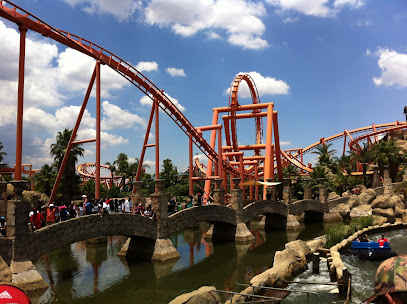
Johannesburg Zoo
Explore Johannesburg Zoo, a captivating wildlife sanctuary showcasing over 2,000 animals and dedicated to conservation and education.
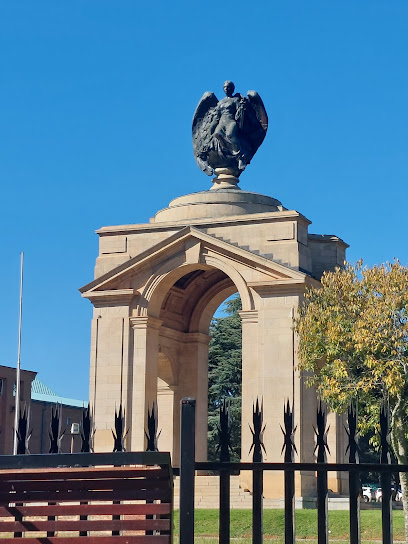
Gandhi Square Precinct
Discover the vibrant history and cultural significance of Gandhi Square Precinct in Johannesburg, a must-visit landmark for every traveler.
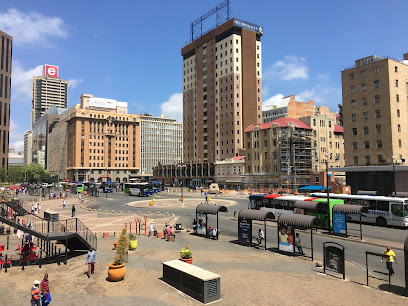
Johannesburg Botanical Gardens
Discover the enchanting Johannesburg Botanical Gardens, a lush urban oasis filled with diverse plant species, serene landscapes, and vibrant experiences in Randburg.
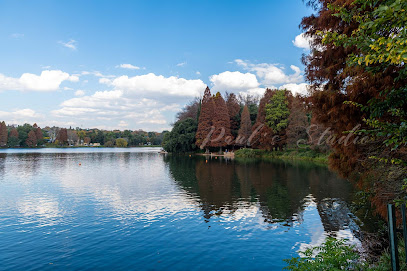
Zoo Lake
Experience the serene charm of Zoo Lake, a picturesque city park in Randburg perfect for relaxation, picnics, and family fun.
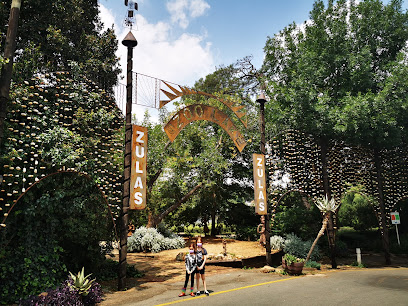
Constitution Hill Human Rights Precinct
Explore the profound history of human rights at Constitution Hill, Johannesburg's compelling heritage site and museum dedicated to freedom and justice.
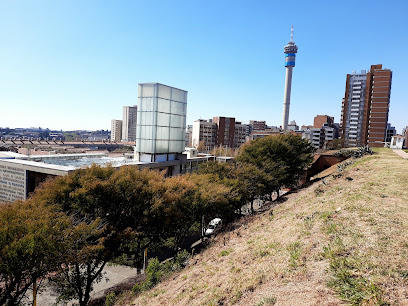
Apartheid Museum
Explore the powerful history of South Africa at the Apartheid Museum, where stories of struggle and triumph come to life.
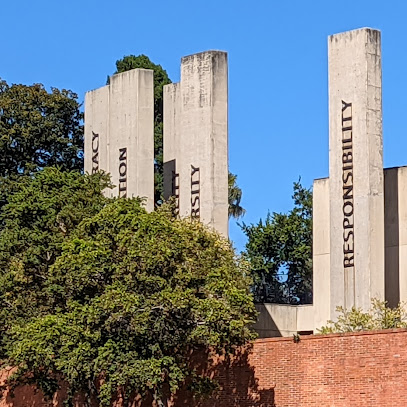
Maboneng Precinct
Discover Maboneng Precinct: A vibrant blend of art, culture, and cuisine in the heart of Johannesburg, perfect for every traveler seeking local experiences.
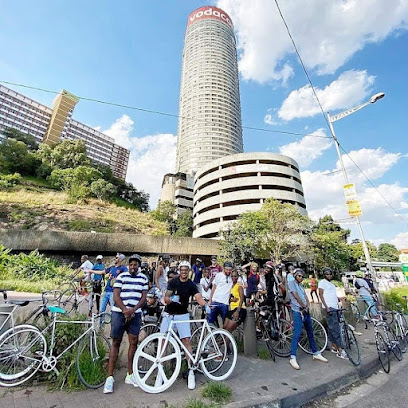
Hector Pieterson Memorial
Explore the Hector Pieterson Memorial, a vital historical site honoring the legacy of the 1976 Soweto Uprising and its impact on South Africa's fight for freedom.
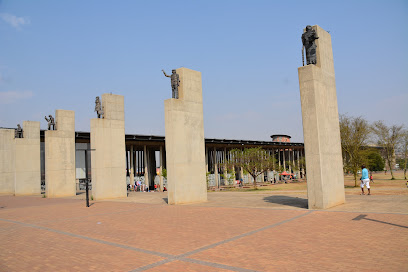
The Wilds Nature Reserve
Discover the serene escape of The Wilds Nature Reserve, a beautiful urban park in Johannesburg filled with diverse wildlife, stunning views, and artistic installations.
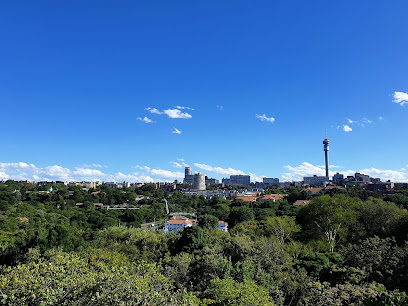
James & Ethel Gray Park
Discover the natural beauty and tranquility of James & Ethel Gray Park in Johannesburg, a perfect urban escape for nature lovers and outdoor enthusiasts.
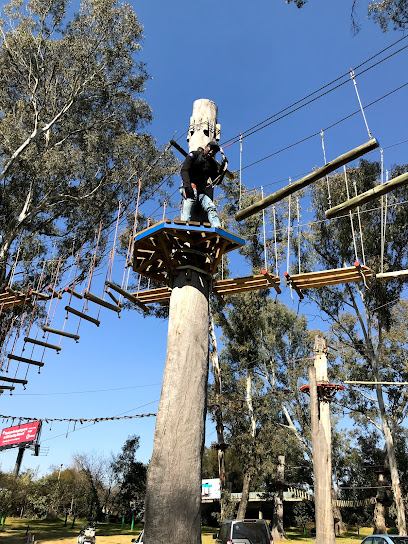
Rhodes Park
Discover the beauty of Rhodes Park in Johannesburg, a tranquil city park perfect for picnics, outdoor activities, and nature walks.
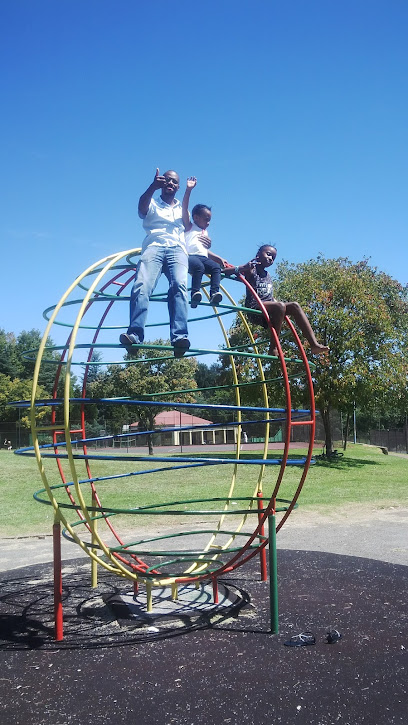
Nelson Mandela Bridge
Experience the stunning views and cultural significance of the Nelson Mandela Bridge, a must-visit landmark in Johannesburg, South Africa.
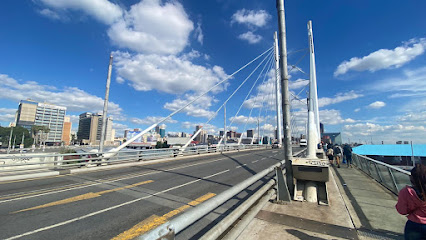
City Sightseeing Johannesburg Visitor Center
Explore Johannesburg's iconic sights and rich culture at the City Sightseeing Visitor Center in Rosebank.
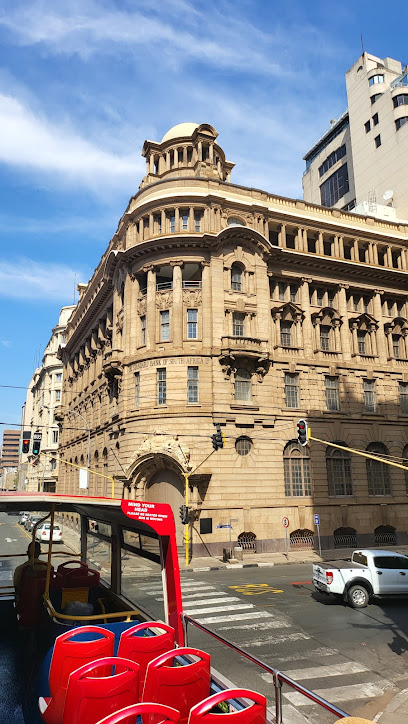
Mary Fitzgerald Square
Discover the vibrant heart of Johannesburg at Mary Fitzgerald Square, a historical landmark that hosts cultural events and offers a relaxing urban park experience.
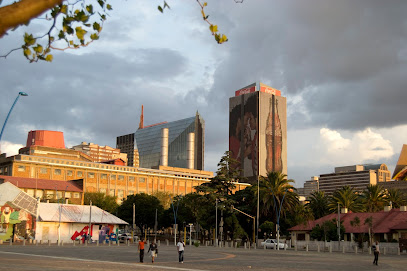
Unmissable attractions to see
Montecasino
Discover the lively Montecasino in Johannesburg, a premier entertainment destination featuring a casino, theaters, and diverse dining options for an unforgettable experience.
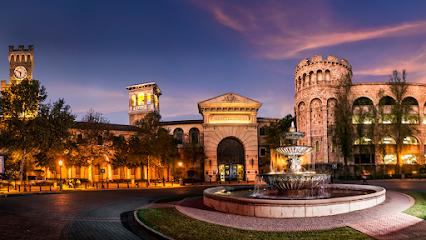
Gold Reef City Theme Park
Explore the thrilling rides and rich history at Gold Reef City Theme Park, Johannesburg's top amusement destination for family fun and adventure.
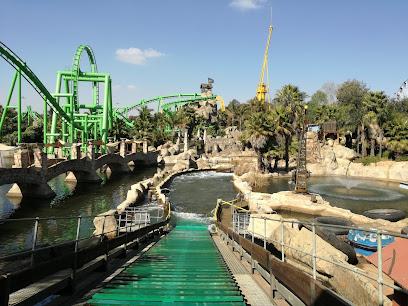
Johannesburg Zoo
Explore Johannesburg Zoo, a dynamic wildlife haven in the heart of Johannesburg, showcasing diverse species and conservation efforts for an unforgettable family experience.
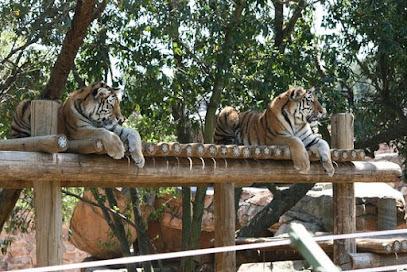
FNB Stadium
Explore FNB Stadium in Johannesburg, a cultural landmark showcasing South Africa's sports history and vibrant atmosphere.
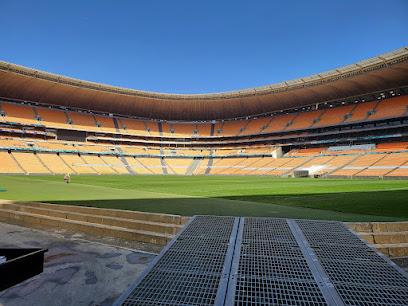
Johannesburg Botanical Gardens
Discover the lush landscapes and diverse flora of Johannesburg Botanical Gardens, a serene escape in Emmarentia for nature lovers and tourists.
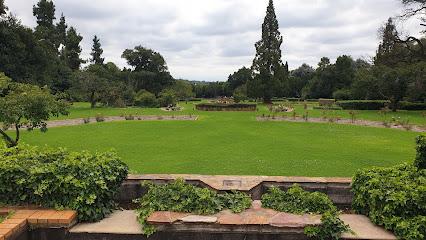
Zoo Lake
Experience the tranquil beauty of Zoo Lake in Randburg, a perfect oasis for relaxation, outdoor activities, and vibrant community events.
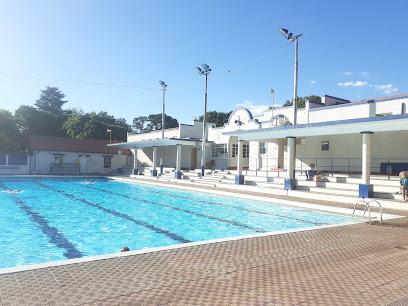
Zoo Lake
Experience the serene beauty of Zoo Lake, a lush urban park in Randburg, perfect for relaxation, picnics, and nature walks.
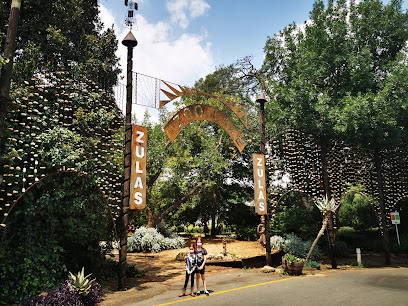
Emirates Airline Park (previously Ellis Park Stadium)
Discover the electrifying atmosphere at Emirates Airline Park, Johannesburg's iconic stadium for rugby and soccer, steeped in rich sports history.
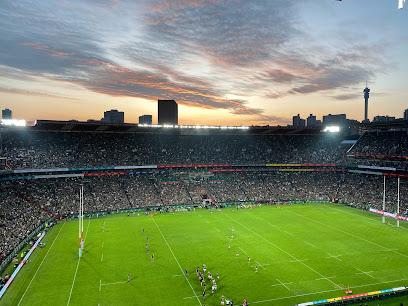
Apartheid Museum
Explore the profound history of South Africa at the Apartheid Museum, where stories of resilience and reconciliation unfold in powerful exhibits.
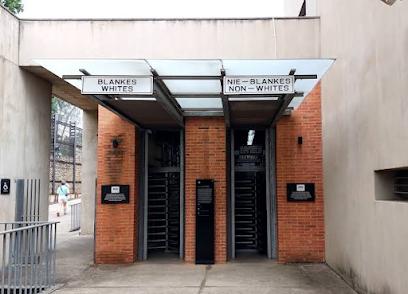
Constitution Hill Human Rights Precinct
Explore Constitution Hill, a historic site in Johannesburg that celebrates South Africa's journey to democracy and human rights.
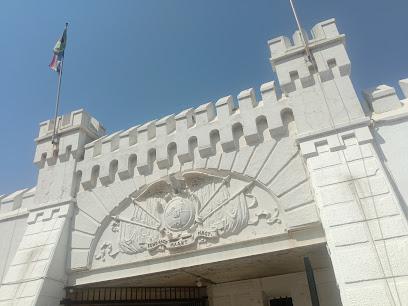
Groenkloof Nature Reserve
Discover Groenkloof Nature Reserve, a stunning natural sanctuary in Pretoria offering adventure, wildlife, and breathtaking landscapes for every nature lover.
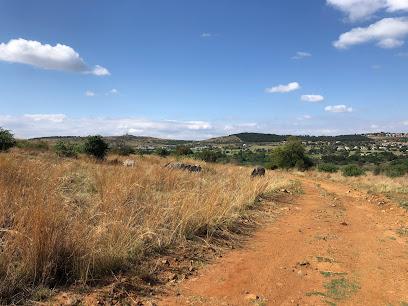
Mandela's House
Explore Mandela's House in Soweto: a heritage museum celebrating the life of Nelson Mandela and South Africa's journey to freedom.
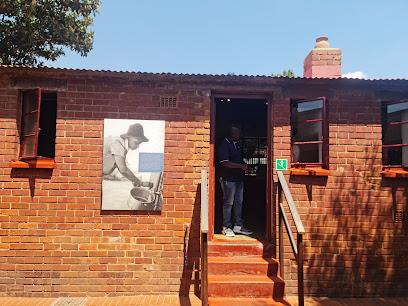
Upside Down House
Discover the enchantment of the Upside Down House in Hartbeespoort, a unique attraction where reality is turned on its head and fun awaits around every corner.
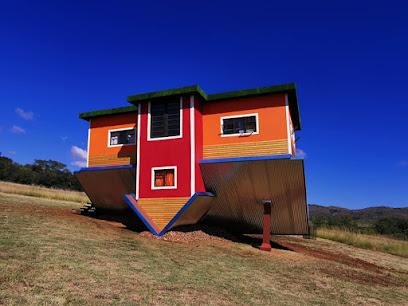
Delta Park
Explore Delta Park, an urban oasis in Randburg, South Africa, perfect for nature walks, picnics, and wildlife watching amidst stunning greenery.
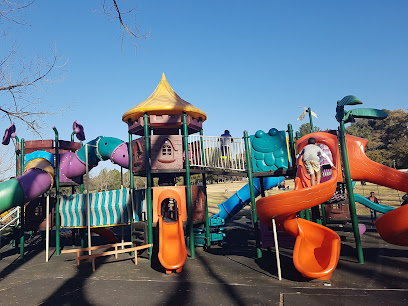
Joburg Theatre
Discover the heart of Johannesburg's performing arts scene at Joburg Theatre, where culture and creativity come alive.
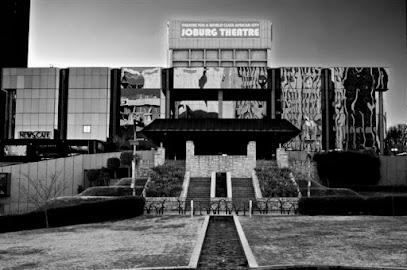
Essential places to dine
Mikes Heritage House
Experience authentic South African cuisine at Mike's Heritage House in Parktown - where every meal is a journey through culture and flavor.
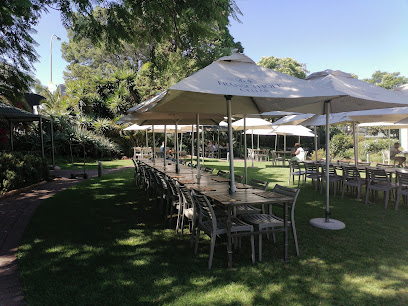
Marble Restaurant
Discover the essence of South African cuisine at Marble Restaurant in Rosebank – where fire-cooked flavors meet modern elegance.
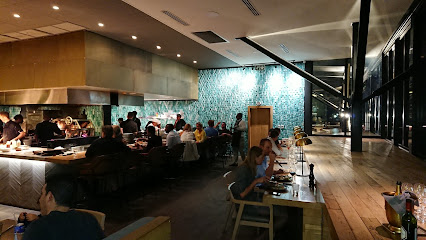
The Grillhouse Rosebank
Experience premium steak dining at The Grillhouse Rosebank—where every bite promises flavor and satisfaction in Johannesburg's lively culinary scene.
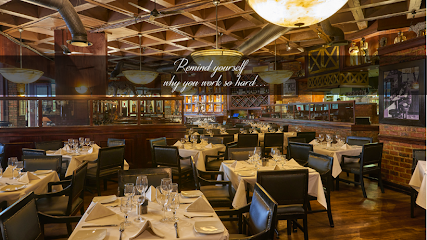
Mr. George
Discover the fusion of local flavors and contemporary cuisine at Mr. George - a must-visit restaurant in Melrose, Johannesburg.
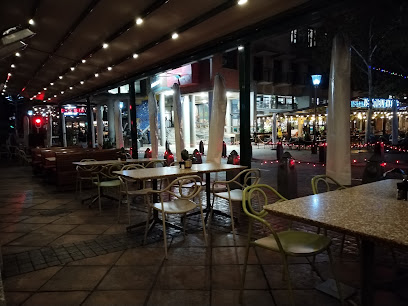
Mozambik Linksfield
Discover the vibrant tastes of Portugal at Mozambik Linksfield – where every meal tells a story.
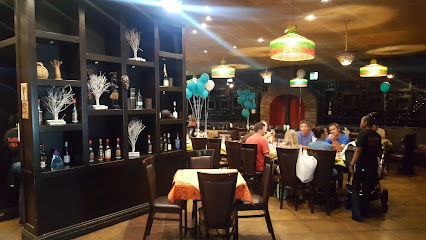
The 11th Floor Restaurant Bedfordview
Discover breathtaking views and exquisite Italian-Mediterranean cuisine at The 11th Floor Restaurant in Bedfordview.
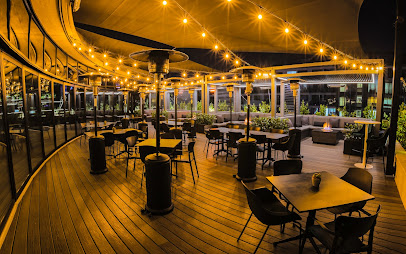
tashas Rosebank
Discover Tasha's Rosebank: A must-visit cafe in Johannesburg for delightful breakfasts and brunches amid a chic ambiance.
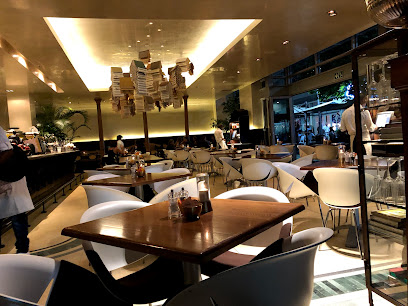
Salvation Cafe
Discover delicious breakfast, brunch, and lunch at Salvation Cafe in Milpark - a must-visit culinary destination in Johannesburg.
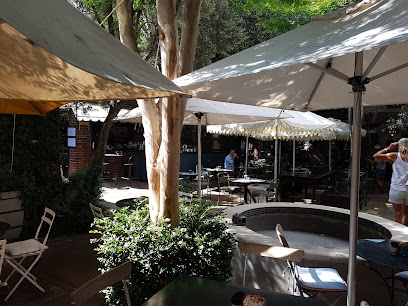
Bambanani
Discover Bambanani in Melville - where family-friendly dining meets delicious cuisine in the heart of Johannesburg.
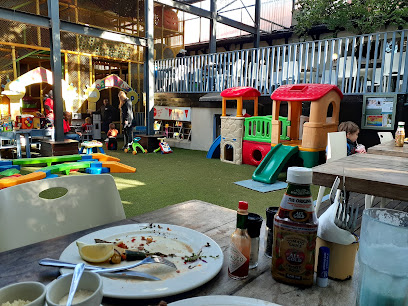
Parreirinha Restaurante
Discover authentic South African cuisine at Parreirinha Restaurante in Melrose Arch, where every meal is a celebration of flavor.
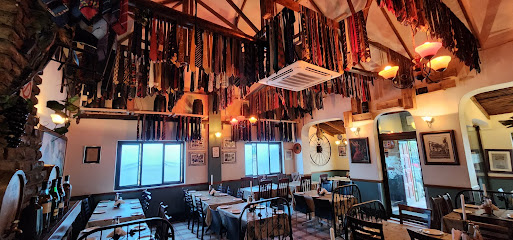
Flames
Discover Flames Restaurant in Randburg - where European flavors meet vibrant dining experiences.
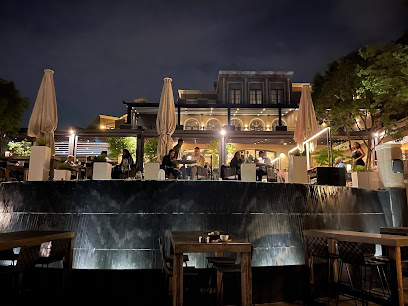
La Parada Rosebank
Savor exquisite tapas in Johannesburg at La Parada Rosebank – where local flavors meet Spanish culinary tradition.
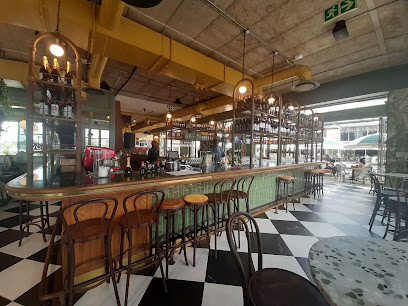
Cut and Craft Bistro
Experience the best of Johannesburg's culinary scene at Cut and Craft Bistro – where every meal is crafted with passion and creativity.
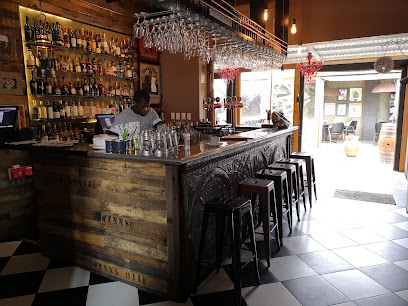
Mezepoli Restaurant Melrose Arch
Experience authentic Mediterranean flavors at Mezepoli Restaurant Melrose Arch – a must-visit destination for food lovers in Johannesburg.
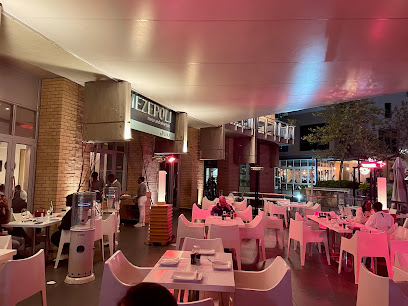
Tortellino d'Oro
Experience authentic Italian cuisine at Tortellino d'Oro in Johannesburg's Oaklands Shopping Centre – where every meal is a celebration of flavor.
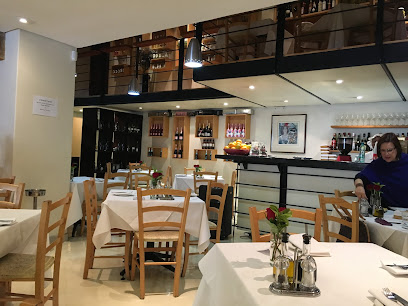
Markets, malls and hidden boutiques
Rosebank Mall
Explore Rosebank Mall in Johannesburg - where shopping, dining, and entertainment converge in a vibrant atmosphere.
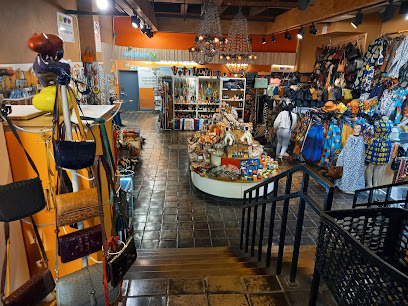
Oriental Plaza
Explore the multicultural shopping experience at Oriental Plaza, a vibrant marketplace in Johannesburg with unique fashion, jewelry, and fabric stores.
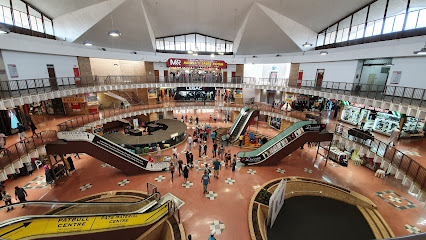
Bedford Centre
Experience the vibrant shopping and dining scene at Bedford Centre, Johannesburg's premier shopping mall offering endless options for every visitor.
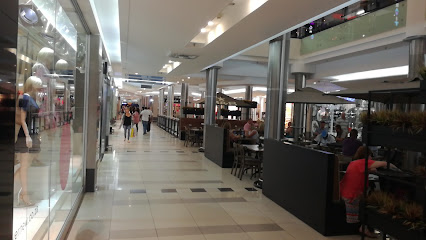
The Zone @ Rosebank
Discover a unique shopping and entertainment experience at The Zone @ Rosebank, where style meets culture in Johannesburg's vibrant Rosebank district.
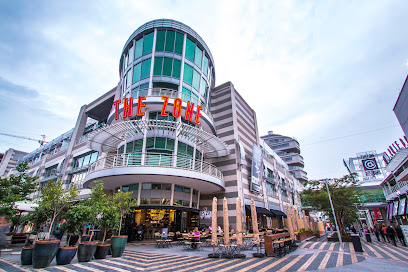
Hyde Park Corner
Discover luxury shopping and exquisite dining at Hyde Park Corner, Johannesburg's premier shopping mall, perfect for every tourist's itinerary.
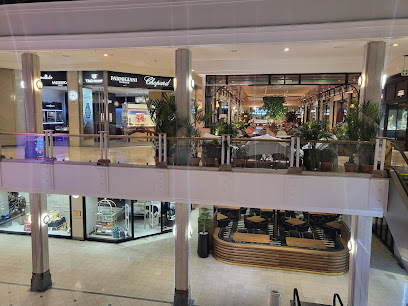
44 STANLEY
Discover 44 Stanley: Johannesburg's vibrant hub for unique shopping, dining, and cultural experiences in a charming setting.
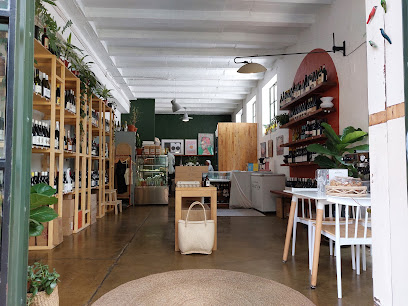
Rosebank Sunday Market
Explore unique crafts, vintage finds, and delicious street food at the Rosebank Sunday Market, a vibrant hub in Johannesburg's cultural scene.
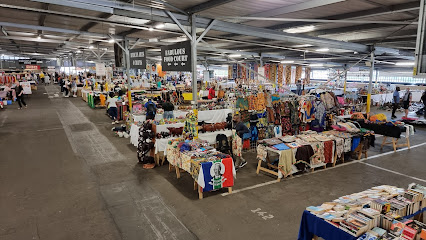
Joburg Mall
Experience the lively shopping and diverse culinary offerings at Joburg Mall, the heart of Johannesburg's retail scene.
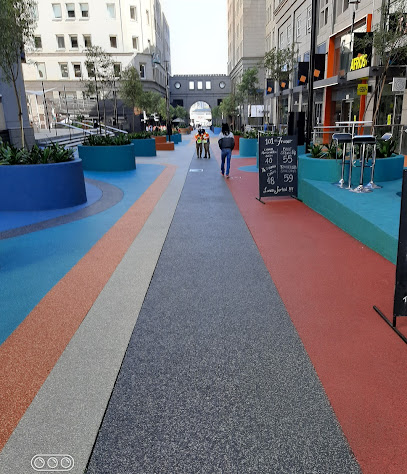
Game Johannesburg City
Discover an extensive range of products at Game Johannesburg City, your ultimate shopping destination in the heart of Johannesburg.
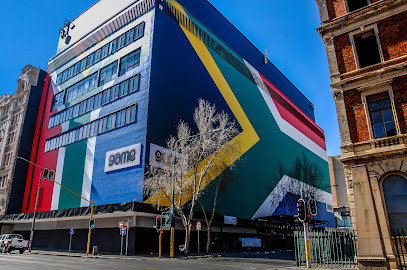
Aazies Cash & Carry Cc
Explore Aazies Cash & Carry in Johannesburg for a diverse selection of quality clothing at competitive prices, perfect for every tourist's wardrobe.
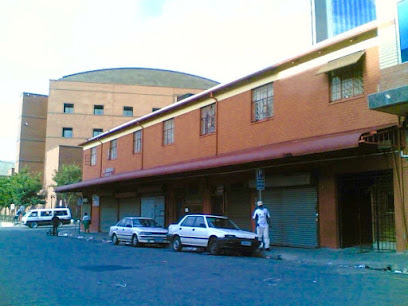
A. Moosa Blankets
Discover the rich textile heritage of South Africa at A. Moosa Blankets, a premier bedding store in Johannesburg offering quality blankets and home textiles.
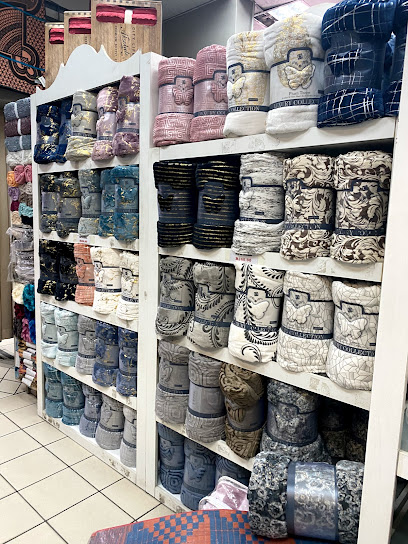
Rosebank Art & Craft Market
Discover the artistic heart of Johannesburg at the Rosebank Art & Craft Market, where unique crafts and vibrant culture await.
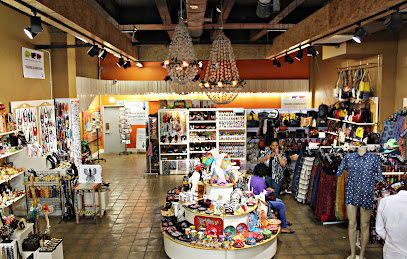
Small street mall
Explore the Small Street Mall in Johannesburg for a vibrant shopping experience filled with local fashion and unique finds.
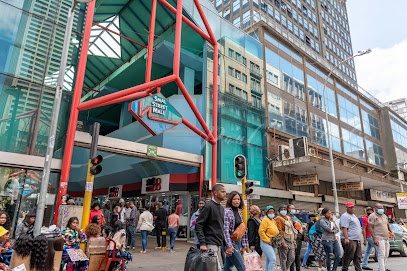
Gifts For You & Yours
Discover unique gifts and exquisite perfumes at 'Gifts For You & Yours' in Johannesburg's vibrant Grand Bazaar.

Small Street Online Store
Explore Johannesburg's vibrant fashion scene at Small Street Online Store, where unique styles and local flair come to life.
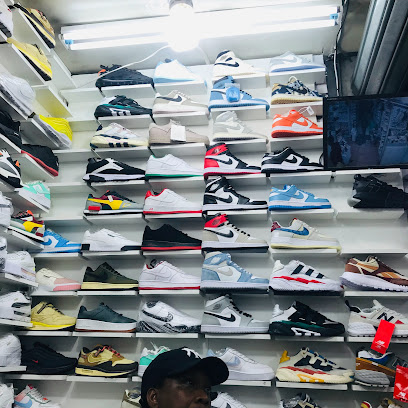
Essential bars & hidden hideouts
Six Cocktail Bar
Discover the lively Six Cocktail Bar in Johannesburg's Melville, where innovative cocktails meet a vibrant atmosphere and live jazz performances for a memorable night out.
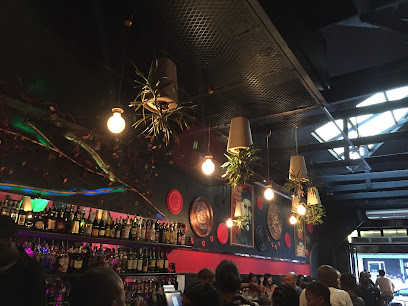
Shakers Cocktail Bar
Discover the lively spirit of Johannesburg at Shakers Cocktail Bar, where creative cocktails and a vibrant atmosphere await every visitor.
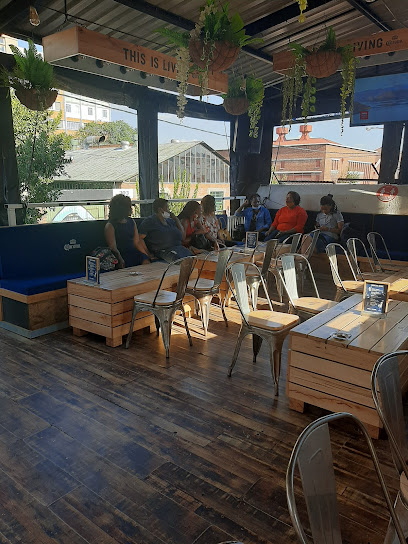
Kitchener's Carvery Bar
Experience the vibrant atmosphere and delectable offerings at Kitchener's Carvery Bar in Johannesburg's Braamfontein, where local culture and fun collide.
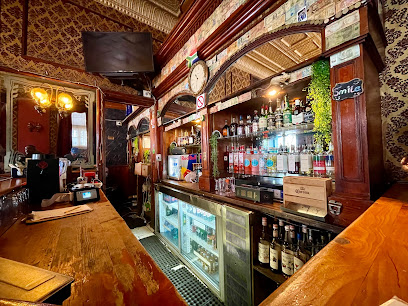
Sin+Tax
Experience the vibrant nightlife at Sin+Tax, a cocktail bar in Rosebank known for its innovative drinks and lively atmosphere.
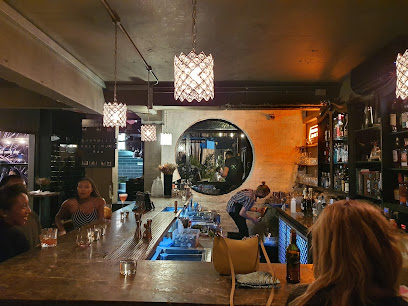
Jo'Anna Melt Bar
Discover the unique melting cheese dishes and vibrant atmosphere of Jo'Anna Melt Bar in the heart of Melville, Johannesburg.
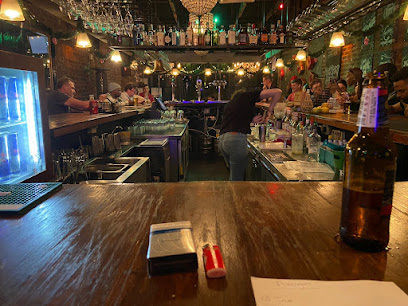
Ratz Bar Melville
Discover the vibrant nightlife at Ratz Bar Melville, Johannesburg's top cocktail destination with creative drinks and a lively atmosphere.
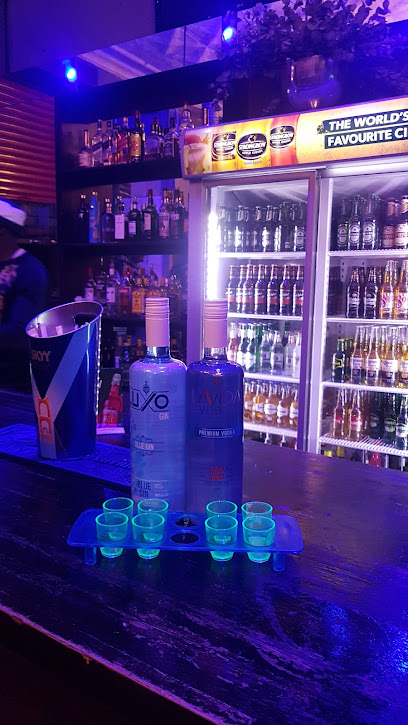
Smoking Kills Bar
Experience the pulse of Johannesburg's nightlife at Smoking Kills Bar, a vibrant destination in Melville offering unique drinks and a lively atmosphere.
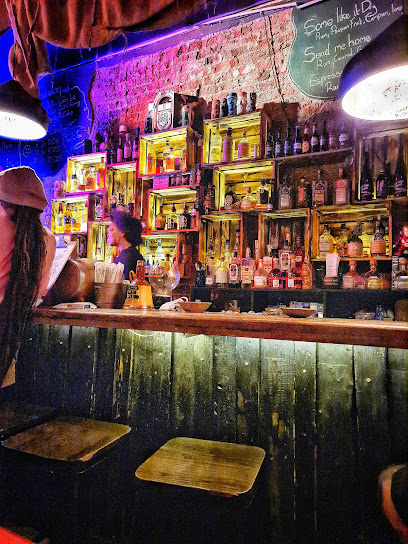
The Luxee Lounge
Discover the luxurious ambiance and vibrant nightlife at The Luxee Lounge in Maboneng, Johannesburg's premier destination for dining and entertainment.
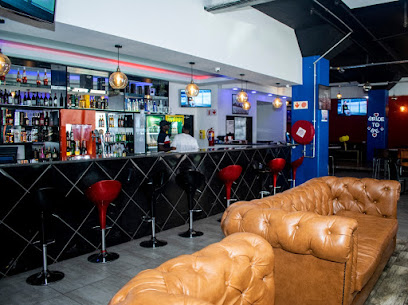
Drama Bar Lounge
Discover Johannesburg's nightlife at Drama Bar Lounge, a vibrant bar in Braamfontein known for its lively ambiance and eclectic drink selection.
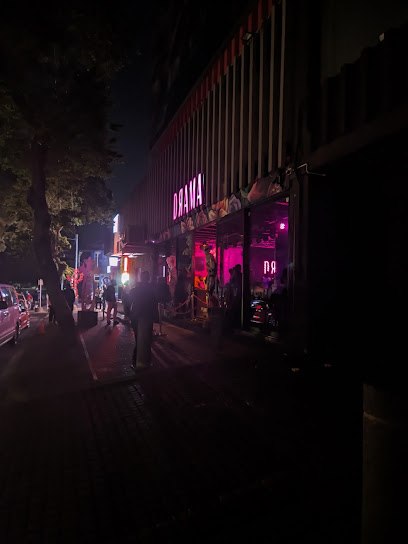
TIPSY
Discover the vibrant nightlife at Tipsy, a bar and grill in Melville, Johannesburg, where delicious food and lively music create the perfect atmosphere.
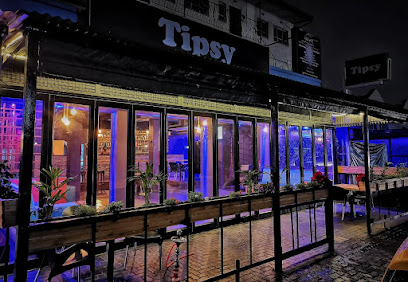
The Majestic Bar
Discover the lively atmosphere of The Majestic Bar, a top pub in Johannesburg CBD, perfect for enjoying drinks and live entertainment.
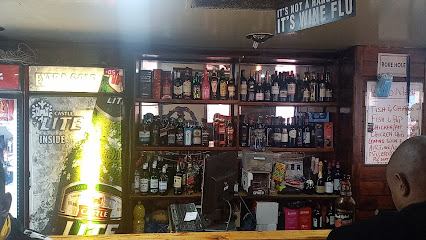
The Fox Den
Discover The Fox Den, a lively bar in Johannesburg offering craft beers, cocktails, and a vibrant atmosphere for unforgettable nights.
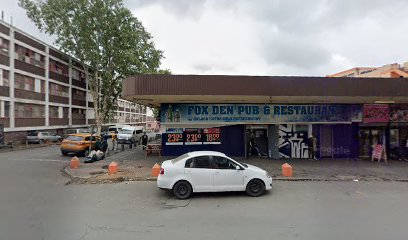
The Beach
Experience the vibrant nightlife at The Beach Bar in Braamfontein, Johannesburg - a perfect blend of fun, drinks, and friendship.
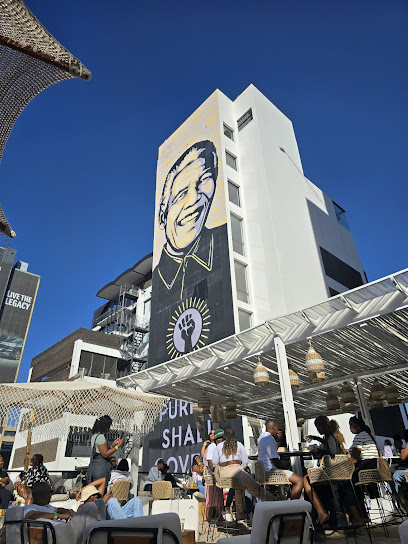
MIX Cocktail Bar
Experience Johannesburg's nightlife at MIX Cocktail Bar, where vibrant cocktails meet an unforgettable atmosphere in the heart of Rosebank.
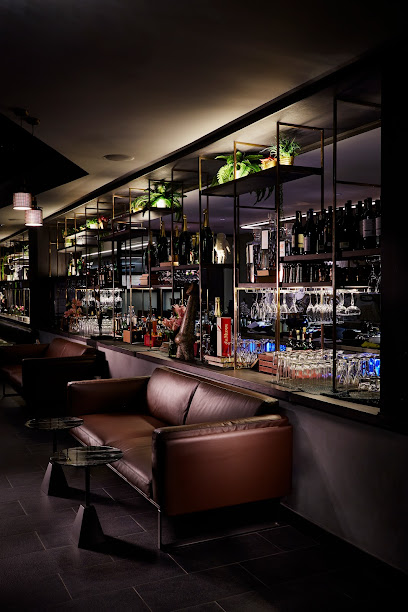
Local Phrases
-
- HelloHallo
[ha-lo] - GoodbyeTotsiens
[toht-see-ens] - YesJa
[yah] - NoNee
[nee] - Please/You're welcomeAsseblief
[us-se-blief] - Thank youDankie
[dahn-key] - Excuse me/SorryJammer
[yahm-mer] - How are you?Hoe gaan dit met jou?
[hu gahn dit met yoy] - Fine. And you?Goed. En jy?
[khoot. en yey] - Do you speak English?Praat jy Engels?
[praht yey eng-els] - I don't understandEk verstaan nie
[ayk fer-stahn nee]
- HelloHallo
-
- I'd like to see the menu, pleaseEk wil asseblief die spyskaart sien
[ayk vil us-se-blief dee spays-kahrt seen] - I don't eat meatEk eet nie vleis nie
[ayk ayt nee flays nee] - Cheers!Gesondheid!
[guh-sund-hayt] - I would like to pay, pleaseEk wil asseblief betaal
[ayk vil us-se-blief buh-tahl]
- I'd like to see the menu, pleaseEk wil asseblief die spyskaart sien
-
- Help!Hulp!
[huhlp] - Go away!Gaan weg!
[gahn vehk] - Call the Police!Bel die Polisie!
[bel dee poh-lee-see] - Call a doctor!Bel 'n dokter!
[bel un dohk-tuhr] - I'm lostEk is verlore
[ayk is fer-loh-ruh] - I'm illEk is siek
[ayk is seek]
- Help!Hulp!
-
- I'd like to buy...Ek wil ... koop
[ayk vil ... kohp] - I'm just lookingEk kyk net
[ayk kayk neht] - How much is it?Hoeveel kos dit?
[hu-veel kohs dit] - That's too expensiveDit is te duur
[deet is teh dyoor] - Can you lower the price?Kan jy die prys verlaag?
[kahn yey dee prayss fur-lahkh]
- I'd like to buy...Ek wil ... koop
-
- What time is it?Hoe laat is dit?
[hu laht is dit] - It's one o'clockDit is een uur
[deet is ayn oor] - Half past (10)Half tien
[half teeyn] - MorningOggend
[oh-ghent] - AfternoonMiddag
[mit-ahk] - EveningAand
[ahnt] - YesterdayGister
[gih-stuhr] - TodayVandag
[fuhn-dahk] - TomorrowMôre
[moh-ruh] - 1Een
[ayn] - 2Twee
[twee] - 3Drie
[dree] - 4Vier
[feer] - 5Vyf
[fayf] - 6Ses
[sehs] - 7Sewe
[seh-weh] - 8Agt
[ahg-t] - 9Nege
[neh-ghuh] - 10Tien
[teeyn]
- What time is it?Hoe laat is dit?
-
- Where's a/the...?Waar is 'n/die...?
[vahr is un/dee] - What's the address?Wat is die adres?
[vaht is dee ahd-rehs] - Can you show me (on the map)?Kan jy my wys (op die kaart)?
[kahn yey may vays (ohp dee kahrt)] - When's the next (bus)?Wanneer is die volgende (bus)?
[vah-nehr is dee fuhl-guhn-duh bus] - A ticket (to ....)'n Kaartjie (na ....)
[un kahrt-kee-uh (nah)]
- Where's a/the...?Waar is 'n/die...?
History of Johannesburg
-
Johannesburg was founded in 1886 following the discovery of gold on the Witwatersrand. The city rapidly transformed from a small settlement to a bustling metropolis, attracting fortune seekers from around the world.
-
The gold rush era brought immense wealth and rapid industrialization to Johannesburg. This period saw the establishment of major mining companies and the construction of infrastructure that would shape the city's growth. By 1896, Johannesburg was the largest city in South Africa.
-
From 1899 to 1902, the Anglo-Boer War had significant impacts on Johannesburg. The British sought control over the lucrative gold mines, leading to intense conflict with the Boer Republics. The war ended with the Treaty of Vereeniging, and the British took control of Johannesburg.
-
The apartheid era, spanning from 1948 to 1994, was a period of institutionalized racial segregation and discrimination in South Africa. Johannesburg was a focal point of apartheid policies, with areas like Soweto becoming symbolic of the struggle against racial oppression.
-
On June 16, 1976, the Soweto Uprising marked a pivotal moment in the anti-apartheid movement. Thousands of students protested against the enforcement of Afrikaans as the medium of instruction in schools. The brutal police response resulted in international condemnation and intensified resistance to apartheid.
-
Nelson Mandela was released from Victor Verster Prison on February 11, 1990, after 27 years of imprisonment. His release marked the beginning of the end for apartheid and set the stage for South Africa's transition to a democratic society. Johannesburg played a significant role in the subsequent political and social changes.
-
Following the end of apartheid in 1994, Johannesburg underwent significant transformations. The city became a symbol of South Africa's rebirth, with efforts to address historical inequalities and promote economic development. Johannesburg today is a vibrant, multicultural city with a rich blend of traditions and modernity.
-
Johannesburg is recognized as one of the largest economic hubs in Africa. The city is home to the Johannesburg Stock Exchange (JSE) and numerous multinational corporations. It continues to be a center for commerce, finance, and industry, driving the economic growth of South Africa and the continent.
-
Johannesburg is a cultural melting pot, reflecting a diverse population with a rich tapestry of languages, traditions, and cuisines. The city's various neighborhoods, such as Maboneng Precinct and Melville, offer a glimpse into its vibrant arts scene, eclectic markets, and dynamic nightlife.
-
Johannesburg boasts numerous landmarks and heritage sites that reflect its historical and cultural significance. Attractions such as the Apartheid Museum, Constitution Hill, and Gold Reef City provide visitors with insights into the city's past and its journey towards transformation.
Johannesburg Essentials
-
Johannesburg is served by O.R. Tambo International Airport, one of the largest and busiest airports in Africa. It is located about 20 kilometers east of the city center. Direct flights from major cities around the world are available. Alternatively, you can arrive via Johannesburg's Lanseria International Airport, which is smaller but also serves domestic and some regional flights. From the airports, you can take a taxi, shuttle service, or rent a car to reach your destination within the city.
-
Johannesburg has a variety of transportation options. The Gautrain is a modern rapid rail system connecting the airport, Sandton, and Pretoria. Public buses, including the Rea Vaya BRT system, are available but may not cover all tourist spots. Minibus taxis are a common mode of transport but can be confusing for newcomers. Ride-hailing apps like Uber and Bolt are widely used and considered safe. Renting a car is also an option, but be prepared for heavy traffic and be cautious of carjacking hotspots.
-
The official currency is the South African Rand (ZAR). Credit and debit cards are widely accepted in hotels, restaurants, and shops. ATMs are plentiful, but it is advisable to use those located in secure areas such as malls or hotels. Carry some cash for smaller purchases or in areas where card facilities may not be available.
-
Safety is a significant concern in Johannesburg. Areas like Hillbrow, Berea, and Yeoville have high crime rates and should be avoided, especially after dark. Petty crimes such as pickpocketing and bag snatching can occur in crowded areas. Always be aware of your surroundings, avoid displaying valuables, and use reputable transportation services. Stay in well-known areas such as Sandton, Rosebank, and Melrose Arch, which have better security.
-
In case of an emergency, dial 10111 for police assistance or 10177 for medical emergencies. Private hospitals like Netcare and Life Healthcare offer high-quality medical services. It is advisable to have travel insurance that covers medical emergencies. Keep a list of emergency contacts and the address of your country's embassy or consulate in Johannesburg.
-
Fashion: Do dress conservatively and avoid flashy jewelry. Casual wear is generally acceptable but dress up for fine dining or business meetings. Religion: Do be respectful of all religious practices. Some areas have conservative communities, so dress modestly. Public Transport: Do be cautious when using public transport. Don't use minibus taxis if you are unfamiliar with the routes. Greetings: Do greet with a handshake and maintain eye contact. Don't use someone's first name unless invited to do so. Eating & Drinking: Do try local delicacies like biltong and braai. Don't drink tap water; opt for bottled water instead.
-
To experience Johannesburg like a local, visit the Maboneng Precinct for its vibrant arts scene and street food. Explore the Neighbourgoods Market in Braamfontein on weekends for local crafts and gourmet food. Engage with locals in safe, public settings to learn about the city's culture and history. For a unique experience, take a guided tour of Soweto to see landmarks like Nelson Mandela's former home and the Hector Pieterson Memorial.
Trending Landmark in Johannesburg
-
Gold Reef City Theme Park
-
Johannesburg Zoo
-
Gandhi Square Precinct
-
Johannesburg Botanical Gardens
-
Zoo Lake
-
Constitution Hill Human Rights Precinct
-
Apartheid Museum
-
Maboneng Precinct
-
Hector Pieterson Memorial
-
The Wilds Nature Reserve
-
James & Ethel Gray Park
-
Rhodes Park
-
Nelson Mandela Bridge
-
City Sightseeing Johannesburg Visitor Center
-
Mary Fitzgerald Square
Nearby Cities to Johannesburg
-
Things To Do in Pretoria
-
Things To Do in Lobatse
-
Things To Do in Gaborone
-
Things To Do in Butha-Buthe
-
Things To Do in Polokwane
-
Things To Do in Leribe
-
Things To Do in Nelspruit
-
Things To Do in Mbabane
-
Things To Do in Malkerns
-
Things To Do in Molepolole
-
Things To Do in Teyateyaneng
-
Things To Do in Manzini
-
Things To Do in Maseru
-
Things To Do in Mokhotlong
-
Things To Do in Mahalapye

















